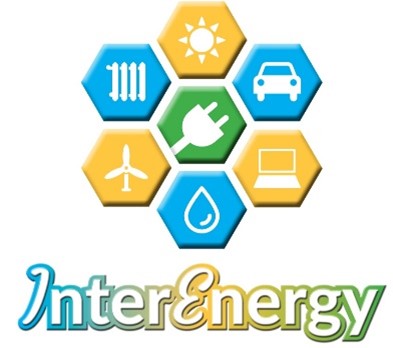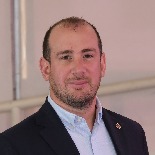
SDEWES INDEX
related metrics presents an opportunity to trigger policy learning, action, and cooperation to bring cities closer to sustainable development.

Special event of the project „Investigating energy transition pathways – interrelation between power-to-X, demand response and market coupling“– INTERENERGY, funded by the Croatian Science Foundation under the project number IP-2019-04 9482, will take place at 16:00, on Wednesday, November 9th 2022 in the ROOM G. Special event chair and project leader is prof. Neven Duić from the University of Zagreb, Faculty of Mechanical Engineering and Naval Architecture.
The INTERENERGY project deals with interrelation between different power-to-x and demand response technologies and market coupling in the energy transition. Role of these technologies is investigated from the context of market coupling, which is already underway in the European Union. The key research question is how to achieve the balanced integration of different power-to-X and demand response technologies, determine their optimal mix and avoid unnecessary technological lock-ins. In order to achieve this, new H2RES energy planning tool is being developed to model the behaviour of power-to-X and demand response technologies. On this event, participants will have the opportunity to get detailed information about the new, open source long-term energy planning model, which is developed with particular emphasis on the technologies that can enable energy transition towards 100% RES-based energy systems.
Also, a hands-on session will offer both on-site and online attendees a quick training on the use of the tool, so that all interested participants can start making their own energy system models in H2RES.
Project website: https://interenergy.wp.fsb.hr/
H2RES tool website: https://h2res.org/
Agenda:
|
16:15-16:30 |
Introduction to the INTERENREGY project |
Prof. Neven Duić |
|
16:30-17:00 |
Creation and features of the H2RES energy planning model |
Prof. Felipe Feijoo |
|
17:00-18:00 |
Hands-on session with H2RES energy planning tool |
Mr. Luka Herc, Mr. Antun Pfeifer, Prof. Felipe Feijoo |
Chair:
 Prof. Neven Duić is a full professor at the Power Engineering at the Department of Energy, Power Engineering and Environment, Faculty of Mechanical Engineering and Naval Architecture. He is Member of Strategic Committee for research infrastructure since 2017, Member of National committee for tracking European Commission's Framework programs for research and technology development since 2011, Co-ordinator of Croatian participation of 50 international scientific research projects. Prof. Neven Duić published over 400 research papers, of which 206 in journals (of which 177 in journals referred in SCI/CC) He was cited 6523 times in Scopus and 55165 times in WoS. He gave more than 180 invited and keynote lectures. Professor Duić established himself as an expert in field of energy planning, with special focus on modelling potential energy transition pathways. This include notable work that resulted with publications in highly citated scientific journals related to renewable energy sources, demand response technologies, integration of Power-to-heat, and Power-to-X technologies and similar. Additionally, his research focus is on developing potential energy transition pathways and strategies that include case study analysis with an aim of demonstrating the viability of 100% renewable energy systems. He coordinated research teams in more than 50 international scientific projects funded through Horizon 2020, Interreg and other funding bodies.
Prof. Neven Duić is a full professor at the Power Engineering at the Department of Energy, Power Engineering and Environment, Faculty of Mechanical Engineering and Naval Architecture. He is Member of Strategic Committee for research infrastructure since 2017, Member of National committee for tracking European Commission's Framework programs for research and technology development since 2011, Co-ordinator of Croatian participation of 50 international scientific research projects. Prof. Neven Duić published over 400 research papers, of which 206 in journals (of which 177 in journals referred in SCI/CC) He was cited 6523 times in Scopus and 55165 times in WoS. He gave more than 180 invited and keynote lectures. Professor Duić established himself as an expert in field of energy planning, with special focus on modelling potential energy transition pathways. This include notable work that resulted with publications in highly citated scientific journals related to renewable energy sources, demand response technologies, integration of Power-to-heat, and Power-to-X technologies and similar. Additionally, his research focus is on developing potential energy transition pathways and strategies that include case study analysis with an aim of demonstrating the viability of 100% renewable energy systems. He coordinated research teams in more than 50 international scientific projects funded through Horizon 2020, Interreg and other funding bodies.
Full CV: http://powerlab.fsb.hr/nduic/
Co-chair:
 Prof. Felipe Feijoo is an associate professor at the school of Industrial Engineering, Pontificia Universidad Católica de Valparaíso (PUCV) and a visiting scholar at the University of Zagreb, Faculty of Mechanical Engineering and Naval Architecture, where he worked as a post-doctorate research associate and a principal developer of the H2RES model during the implementation of INTERENERGY project (2020-2021). He worked as a post-doctorate research associate at the Pacific Northwest National Laboratory's Joint Global Change Research Institute (JGCRI-PNNL) and at the Johns Hopkins University's Systems Institute. While at JHU, he also had the opportunity to work at the MIT Collaborative Initiatives.
Prof. Felipe Feijoo is an associate professor at the school of Industrial Engineering, Pontificia Universidad Católica de Valparaíso (PUCV) and a visiting scholar at the University of Zagreb, Faculty of Mechanical Engineering and Naval Architecture, where he worked as a post-doctorate research associate and a principal developer of the H2RES model during the implementation of INTERENERGY project (2020-2021). He worked as a post-doctorate research associate at the Pacific Northwest National Laboratory's Joint Global Change Research Institute (JGCRI-PNNL) and at the Johns Hopkins University's Systems Institute. While at JHU, he also had the opportunity to work at the MIT Collaborative Initiatives.
His research is broadly focused on the analysis of energy systems and their interaction with the climate-environment and other sub-systems. To do so, he developed (model and solve) a variety of mathematical models based on Mixed Complementarity Problems (MCP), Bi-level optimization models and statistical models. Other research interests include health-economics and predicting-forecast modeling using machine learning techniques (data analytics). He has also worked and led several projects at the Tampa Electric Company (TECO), Florida. He is cited 336 times on Scopus and has an h-index of 12.
Co-chair:
 Mr. Antun Pfeifer is an expert in energy planning and modelling of energy systems with main scientific contributions focused on the modelling of energy systems in transition from fossil fuel-based ones towards zero-emissions energy systems based on renewable energy. His main field of interest includes energy planning, modelling of energy systems, integration of variable renewable energy sources, use of demand response and storage technologies and energy markets. He develops new solutions for modelling of energy systems with comprehensive approach, using simulation approach, optimization approach, market integration and mathematical approaches as the game theory for multiple interconnected energy systems planning on a coupled day-ahead power market. He participated in the implementation of 12 international scientific projects funded by Horizon 2020, Interreg, IPA, EUKI and other funding bodies. Mr. Pfeifer is an author of 13 scientific journal publications indexed on Scopus. He has an h-factor of 8, with 192 citations.
Mr. Antun Pfeifer is an expert in energy planning and modelling of energy systems with main scientific contributions focused on the modelling of energy systems in transition from fossil fuel-based ones towards zero-emissions energy systems based on renewable energy. His main field of interest includes energy planning, modelling of energy systems, integration of variable renewable energy sources, use of demand response and storage technologies and energy markets. He develops new solutions for modelling of energy systems with comprehensive approach, using simulation approach, optimization approach, market integration and mathematical approaches as the game theory for multiple interconnected energy systems planning on a coupled day-ahead power market. He participated in the implementation of 12 international scientific projects funded by Horizon 2020, Interreg, IPA, EUKI and other funding bodies. Mr. Pfeifer is an author of 13 scientific journal publications indexed on Scopus. He has an h-factor of 8, with 192 citations.
